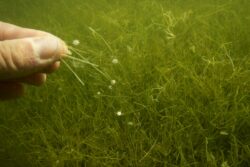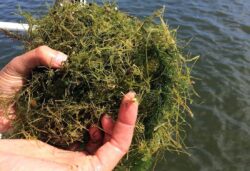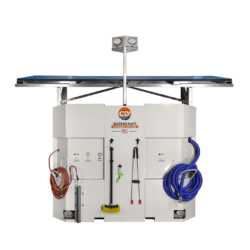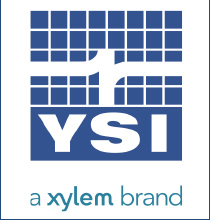 Starry stonewort (Nitellopsis obtusa) is a non-native algal species in North America and an aggressive aquatic invasive species (AIS). Scientists first discovered starry stonewort in the U.S. in 1978 in New York. Now found in nine states and more than 1,700 waterbodies in North America, it is among the most concerning AIS species.
Starry stonewort (Nitellopsis obtusa) is a non-native algal species in North America and an aggressive aquatic invasive species (AIS). Scientists first discovered starry stonewort in the U.S. in 1978 in New York. Now found in nine states and more than 1,700 waterbodies in North America, it is among the most concerning AIS species.
Starry stonewort is of special concern because:
- it grows in waters 2-25 feet deep;
- it’s a free-floating macro-algae that grows on many different substrates;
- chemical treatments are ineffective;
- it threatens sportfish spawning habitat;
- its mats hinder all kinds of boating.
The Minnesota Department of Natural Resources found the first starry stonewort infestation in Minnesota in 2015 – 260 acres in Lake Koronis. By the summer of 2016, this invasive had covered thousands of acres along the Lake Koronis shore. And by 2019, starry stonewort had spread to 145 waterbodies in Minnesota with 29 public access points.
 To empower the public to help contain the dramatic spread of this invasive, Minnesota Lakes and Rivers Advocates (MNLRA) developed the “Stop Starry Stonewort” program. In 2021, Minnesota and local government agencies funded the program, which will install CD3 systems at every public access on infested lakes in the state. CD3 (Clean-Drain-Dry-Dispose) Systems are waterless, user-operated, free to the public cleaning equipment designed to reduce the spread of AIS.
To empower the public to help contain the dramatic spread of this invasive, Minnesota Lakes and Rivers Advocates (MNLRA) developed the “Stop Starry Stonewort” program. In 2021, Minnesota and local government agencies funded the program, which will install CD3 systems at every public access on infested lakes in the state. CD3 (Clean-Drain-Dry-Dispose) Systems are waterless, user-operated, free to the public cleaning equipment designed to reduce the spread of AIS.
 Here’s how the public/private containment solution works:
Here’s how the public/private containment solution works:
Provide CD3 systems at public access points as self-service tools to clean, drain, and dry boats and trailers
Encourage system use by improving boat ramp design AND via targeted community education and establishing social norms.
Stop Starry Stonewort is an innovative campaign created to empower boaters to stop the spread of AIS — to preserve non-infested lakes and to save AIS management costs.
The project is intended to create a long-term educational infrastructure that changes boater behavior and reduces the spread of starry stonewort. Additionally, the statewide program, which includes 28 CD3 System installations, models an approach that can help address future infestations.
To learn more about the project and services provided by CD3, contact stopAIS@cd3systems.com, call 612-467-0441, or visit www.cd3systems.com










